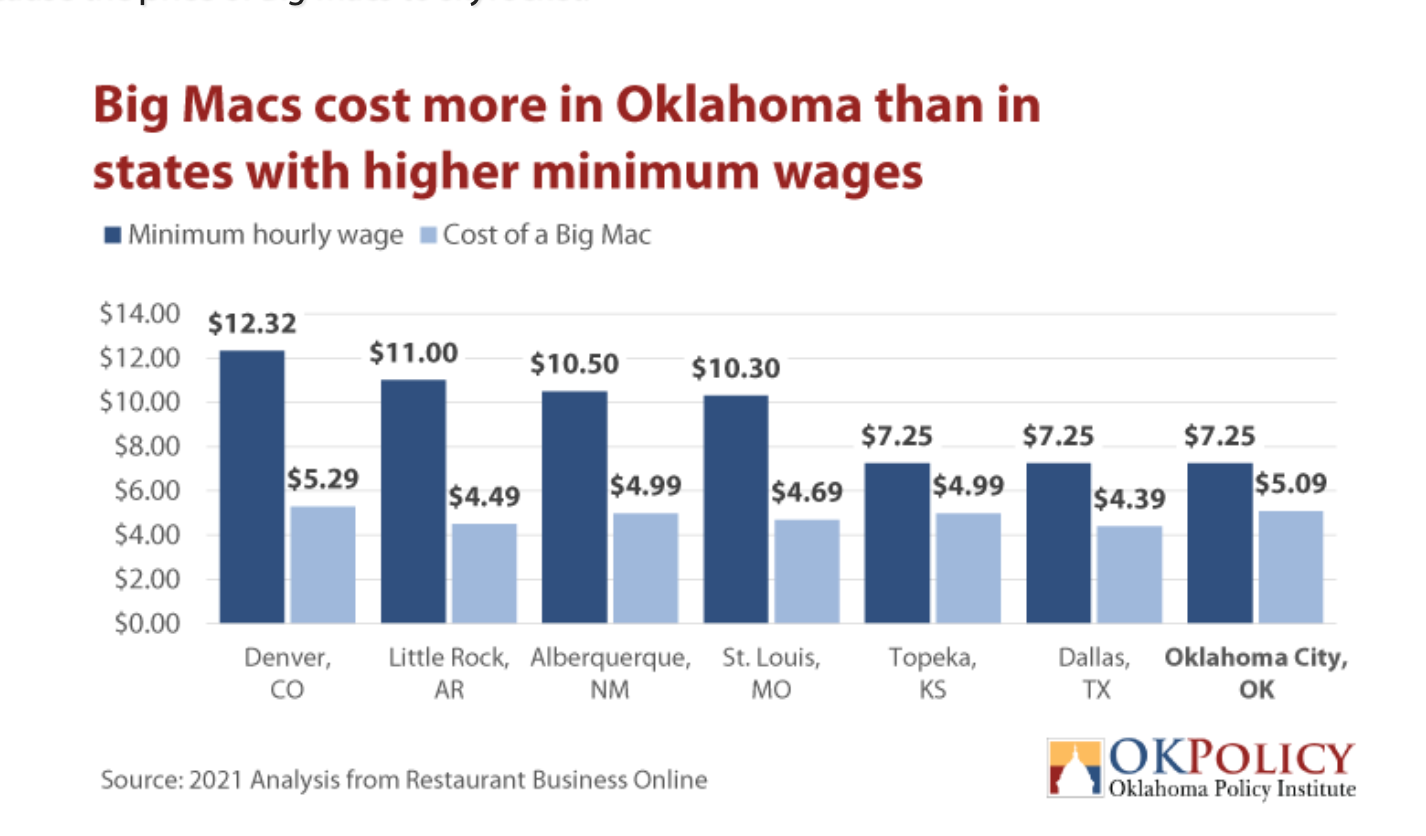That people treat wages and prices as somehow completely decoupled will never not be striking to me. Granted, the relationship between higher wages and employment is messy—it is not always the case that higher wages mean employers hire fewer people and is more case dependent—but it is not the case that higher wages don't have to be recovered somewhere, usually from price.
From the WSJ today, as California minimum wage goes from $16 to $20 for fast food workers:
California consumers said they supported the idea of workers earning more—given the state’s high cost of living—but wished they didn’t have to pay more to dine out.
You won't get a much better example of economic illiteracy, innumeracy, and misguided helpfulness all in one place. People want other people to earn more money, which is nice, but they also want someone else to pay for it, which is, you know, often nonsense.
The relationship between minimum wages and fast-food prices is messy. As the following figure shows, just because you have a lower minimum wage does not mean you lower fast-food prices than states with higher minimum wages. Sure, if one state has a $ 100-an-hour minimum and an adjacent one has $1 an hour there will be effects, but it might mostly be that everyone goes to work in the adjacent state.


